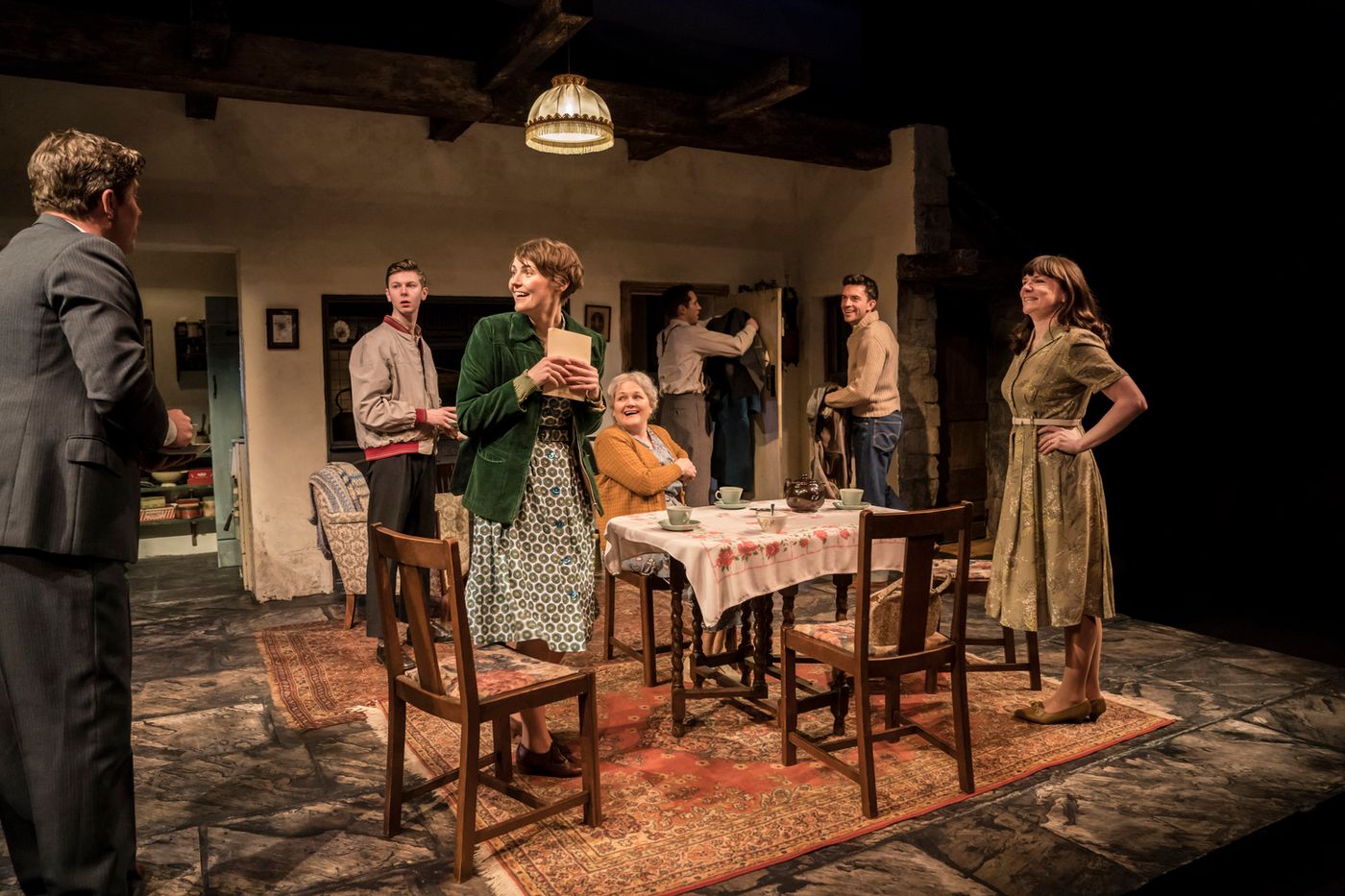Review: THE YORK REALIST, Crucible, Sheffield

![]() Following its recent run at The Donmar Warehouse, this Sheffield Theatres co-production of Peter Gill's The York Realist arrives in Yorkshire.
Following its recent run at The Donmar Warehouse, this Sheffield Theatres co-production of Peter Gill's The York Realist arrives in Yorkshire.
When this play debuted in 2001, some critics felt its portrayal of a Yorkshire family veered a little too much towards stereotyping. Whilst this accusation is not entirely ungrounded, there is something about experiencing the play in its home county that brings the setting and the characters to life. There is an easy warmth and familiarity here in the flapping about tea time, the debates over what kind of shirt to wear for going to the pub, the choice of custard or Carnation with pie.
The play is set in rural Yorkshire. It's the 1960s, a time when social and sexual change is coming; and when the traditional and the new are both striving for dominance. The sense of being on the cusp of change, caught between old, familiar, traditions and the potential of new horizons, is the thematic heart of the piece - even the family home is on this cusp of the old and new, as the characters talk about ripping out the old range to make the house 'modern' and debate whether or not to buy a washing machine.
The central character, who embodies this sense of being inbetween states, is farmer George (Ben Batt). No longer young, yet not yet old, he still lives in the family home, where he occupies both the role of man of the house and that of favoured son, doted on by his elderly widowed mother (Lesley Nicol). He is gay, and comfortable with being so, yet is still expected (and partly expects) to marry a woman. He is a labourer, yet he also has a talent for acting.
Having got involved with a local production of the York Mystery Plays, George meets Londoner John (Jonathan Bailey). They begin a relationship, but the Culture Clash of rural Yorkshire vs metropolitan London proves to be a huge obstacle.
John enthuses over the rundown rural cottages and authentic wood-fired hearths of George's vilage like a tourist discovering foreign wonders; George has a similar reaction to the theatres, museums and 'Japanese lampshades' of the big city. However, it is precisely the fact that each finds each other's world so alien that provides the tension. They may love each other, but their identities are utterly entrenched in place, and class.
John's world is cosmopolitan, full of well-connected friends and high-culture leisure pursuits, whilst George's is parochial - surrounded by family and friends he has known since childhood, whose primary social outlets are the local chapel and the pub.
John tries to convince George he could make a living from acting if he moved to London, but George has no intention of being a token Northerner, wheeled out purely to play Northern roles as if he were an exotic curiosity. Similarly, George suggests John could move to Yorkshire and work in the theatres of York or Scarborough, but both know John has other horizons in his sights.
The play is lovingly staged and directed, with the set (designed by Peter McKintosh), a beautiful reconstruction of the ageing family home. Paul Pyant's lighting design is sympathetic and subtle, with some beautiful effects, such as the only light on the stage when the two men head to make love for the first time being the hallway light visible through a crack in the door.
Robert Hastie's direction brings out the emotions at work through effective use of silence, as well as rapid back-and-forth affectionate banter between characters. Both the humour and the drama are brought through effectively - although the innuendo is ramped up a little too much in places, with some of the actors delivering those lines in a way that seems a bit too knowing.
The supporting cast provide sympathetic and believable characterisation as George's family and friends. Jonathan Bailey takes the character of John, who could be quite difficult to like on paper, and makes his enthusiasm and slight naivete really endearing.
The main reason to see this play, though, is the star turn from Batt. He is astonishingly good - funny, charming, angry, loving, fearful - and unfailingly real as this character torn between two worlds. This is one of the strongest lead actor performances I have seen in a long time, and it will be a tragedy if he isn't shortlisted many times over when awards season comes around.
This show is short (just over two hours including interval), and in many ways it is deceptively simple - no grand tricks in the set, no fancy flourishes in the lines or delivery - but this only serves to highlight that this is a carefully and affectionately crafted piece of theatre.
The York Realist is at the Crucible, Sheffield until 7 April.
Photo by Johan Persson
Reader Reviews
Videos

